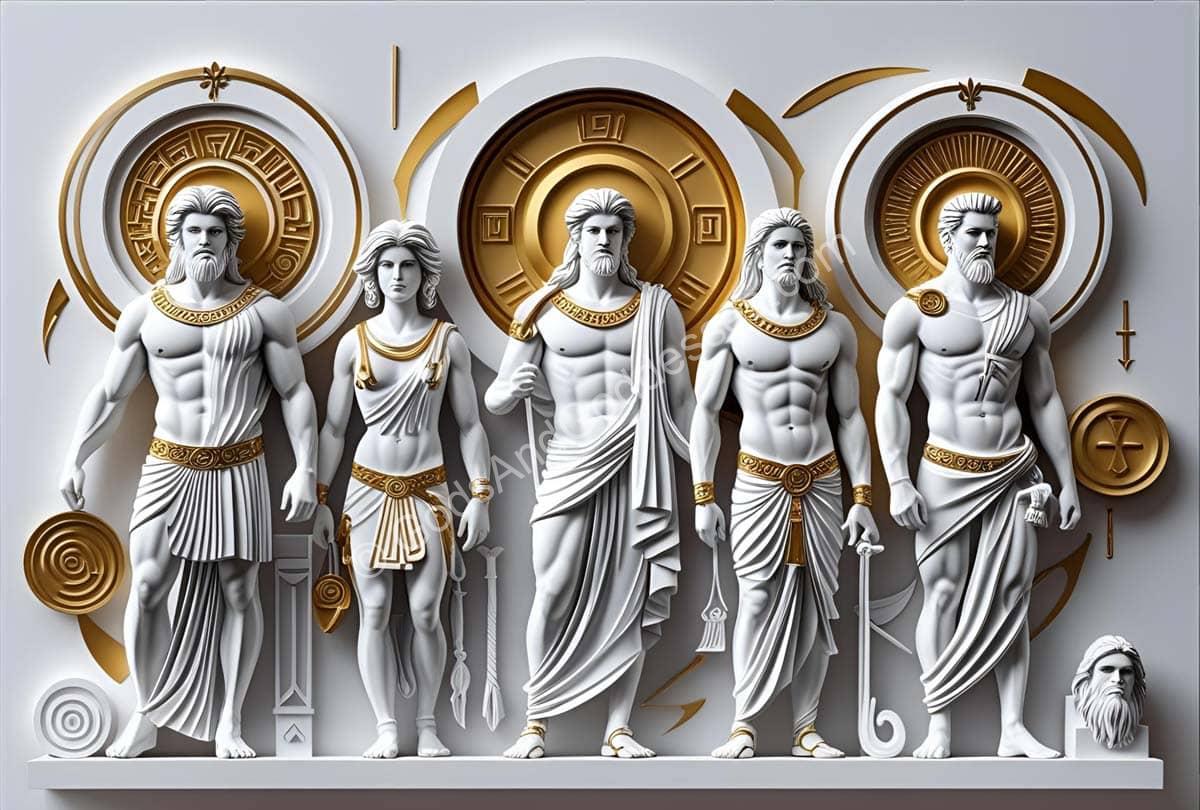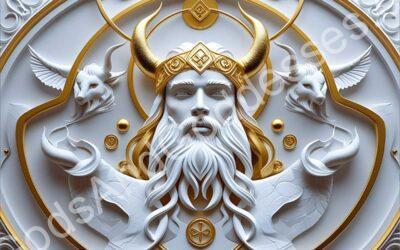Introduction: Why Greek God Names Still Matter
The names of the Greek gods are among the most famous in world mythology; they echo through epic poetry, philosophy, art, and modern culture. Each name is more than a label—it carries the weight of cosmic forces, natural elements, and human experience. From Zeus, the thunder-wielding king of Olympus, to Hades, ruler of the underworld, these names reveal how the Greeks saw divinity as both protector and challenger of humankind.
At GodsAndGoddesses.com we explore not only Gods, Goddesses, and Mythological Symbols, but also how their names shaped cultural identity, spirituality, and storytelling across centuries.
“In Greek mythology, the names of the gods were more than titles—they were symbols of cosmic forces, stories, and lessons for mortal life.”
See also: Mythology.
Key Takeaways About Greek God Names
-
Greek god names reflect power, nature, and human values.
-
Many names are rooted in ancient Greek words tied to cosmic forces.
-
Their legacy shaped philosophy, language, art, and culture.
-
These names remain alive in modern literature, film, and spiritual practice.
Why Greek God Names Matter
The names of Greek gods remain among the most recognized in mythology today. Their importance lies in:
-
Cultural Legacy – Their myths influenced philosophy, art, and literature.
-
Language and Symbolism – Many names derive from Greek words tied to power, wisdom, or natural forces.
-
Inspiration Today – Greek god names appear in modern naming trends, literature, films, and branding.
See also: Gods by Mythology.
Major Greek God Names and Their Meanings
Zeus
-
Meaning: Possibly linked to Dyeus, meaning “sky” or “shining.”
-
Role: King of the gods, ruler of the sky, thunder, and law.
-
Symbols: Thunderbolt, eagle, oak tree.
Hera
-
Meaning: Possibly from hērōs, meaning “protectress.”
-
Role: Queen of the gods, goddess of marriage and family.
-
Symbols: Peacock, diadem, cow.
Poseidon
-
Meaning: “Lord of the earth,” from posis (husband) and da (earth).
-
Role: God of the sea, earthquakes, and horses.
-
Symbols: Trident, horse, dolphin.
Athena
-
Meaning: Linked to Athene, patron of Athens, associated with wisdom.
-
Role: Goddess of wisdom, strategy, and crafts.
-
Symbols: Owl, olive tree, spear.
-
See also: Owls and the Goddess of Wisdom: Why Athena Still Watches Us.
Apollo
-
Meaning: Possibly tied to apellai, meaning “assembly” or “strength.”
-
Role: God of music, prophecy, healing, and the sun.
-
Symbols: Lyre, laurel wreath, sun.
Artemis
-
Meaning: Linked to artemes, “safe” or “unharmed.”
-
Role: Goddess of the hunt, wilderness, and moon.
-
Symbols: Bow, deer, crescent moon.
Ares
-
Meaning: Related to are, “bane” or “curse.”
-
Role: God of war, embodying bloodlust and battle frenzy.
-
Symbols: Spear, helmet, vulture.
Hades
-
Meaning: From a-idēs, “the unseen one.”
-
Role: God of the underworld and the dead.
-
Symbols: Helm of invisibility, Cerberus, scepter.
Other Notable Greek God Names
-
Hermes – Messenger of the gods, trade, travel, and trickery.
-
Hephaestus – God of fire, smithing, and craftsmanship.
-
Dionysus – God of wine, ecstasy, and divine madness.
-
Hestia – Goddess of the hearth and home.
Greek God Names in Modern Culture
-
Language – Words like tantalize (from Tantalus) and herculean (from Heracles) show mythological influence.
-
Art & Literature – From Homer’s Iliad to modern fantasy.
-
Popular Media – Films, games, and novels (Percy Jackson, Marvel’s Thor).
-
Modern Worship – Some groups in Greece and abroad continue honoring the Olympian gods.
External resource: Britannica – Greek Religion.
Frequently Asked Questions
What is the most famous Greek god name?
Zeus is the most widely recognized, but Athena, Poseidon, and Hades are also famous.
Are Greek god names still used today?
Yes, names like Apollo, Athena, and Dionysus remain popular in modern culture and naming.
What language are Greek god names from?
Most are from Ancient Greek, often linked to words with symbolic meaning.
Conclusion
Greek god names reflect the depth of a civilization’s imagination and values. From the thunder of Zeus to the wisdom of Athena and the mystery of Hades, these names continue to inspire and endure.
Explore more:
“To speak a Greek god’s name is to remember the myths that shaped civilization itself.”
- Odin God Story - August 24, 2025
- The Story of Ra: Egyptian Sun God and Creator - August 24, 2025
- Kraken: Mythological Sea Monster of the Deep - August 24, 2025




